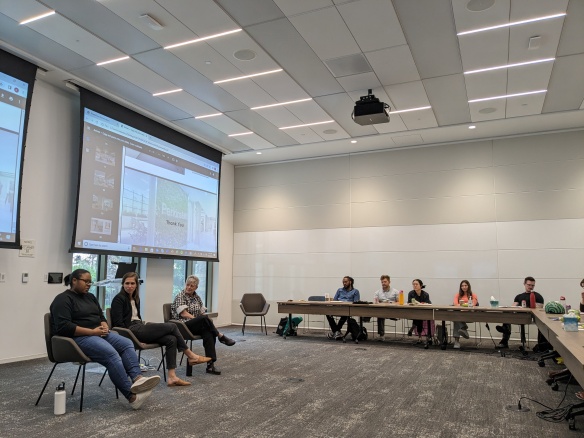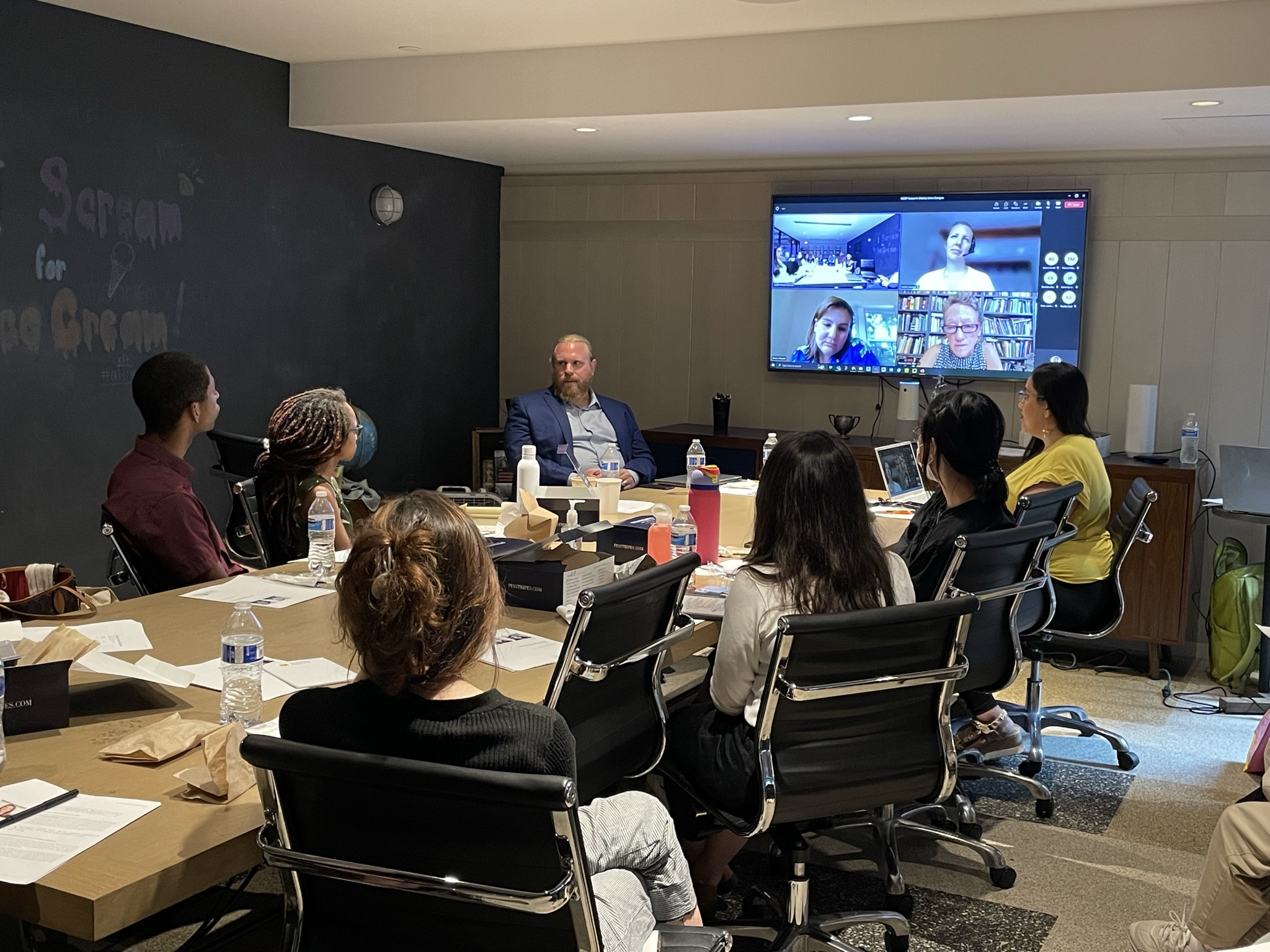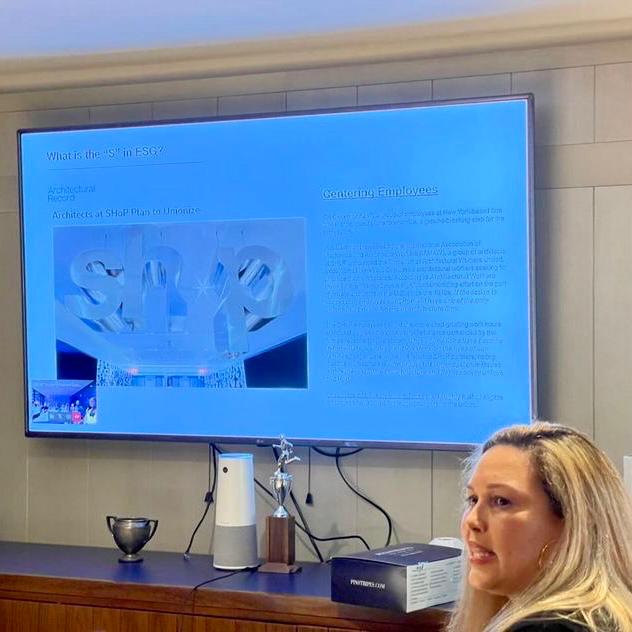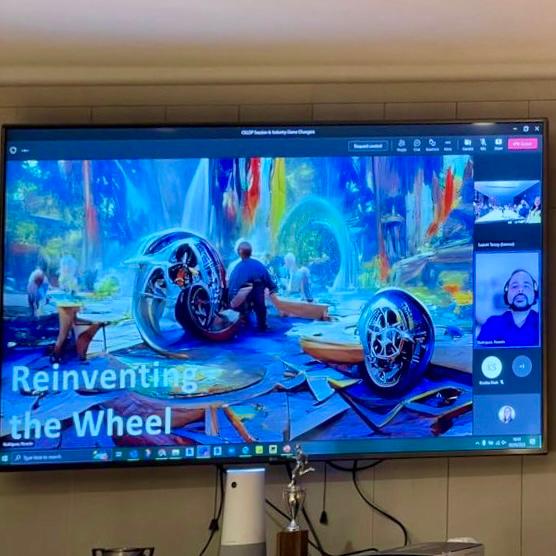Date: May 12th, 2023
Location: American Geophysical Union Center
Led by: David Leestma, Keegan Wilson
Session Sponsor: CADD Microsystems, Steelcase, StructureCraft, YKK AP America Inc.
Session Downloads: Session Program
Overview
Session 3 centered around “Tackling Climate Change.” Local professionals presented their respective vantage points and methodologies. The first half of the session addressed perspectives from energy managers, developers, and regulators from within state programs. Following a discussion where panelists addressed hurdles, successes, and opportunities to leverage climate and energy conversations, attendees toured the American Geophysical Union Center with the building operations director and learned about the sustainable design techniques utilized by the facility. The session ended with presentations from building, interior, and landscape architects who shared successful sustainable practices for completed projects.
Presentation #1
Identifying the Issue
Speakers: Tommy Wells
Tommy Wells, Director of the Mayor’s Office of Policy and Legislative Affairs, kicked off the session with a keynote address that highlighted strides that have been taken locally to address climate change. He also identified a number of political hurdles to achieving ambitious climate goals, and shared the political and social influences that pushed him to personally get involved. The Smart Growth and Solar for Everyone programs were some of the success stories Thomas has been involved in during his tenure working for the city of Washington.
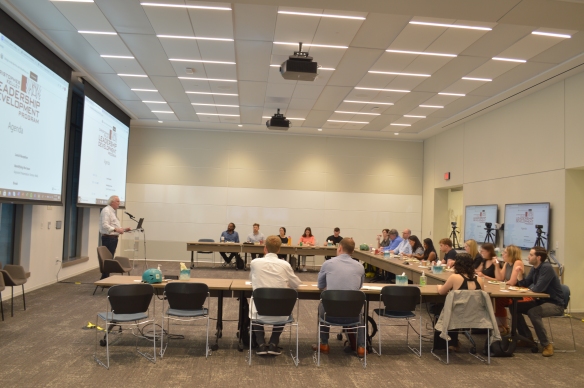
Presentation #2
Educating the Client and the Public
Speakers: Kim Pexton, John Lord, Mark Stewart
The panelists included Kim Pexton (Developer, JBG Smith), John Lord (Energy Manager for Virginia Public Schools), and Mark Stewart (Climate Change Leader for Maryland Department of the Environment). Questions ranged from topics such as addressing upfront cost concerns to best practices for reaching the general public with sustainable practices, and panelists had the opportunity to share insights into climate initiatives, as well as moments of success and frustration in reaching their organizations’ climate goals.
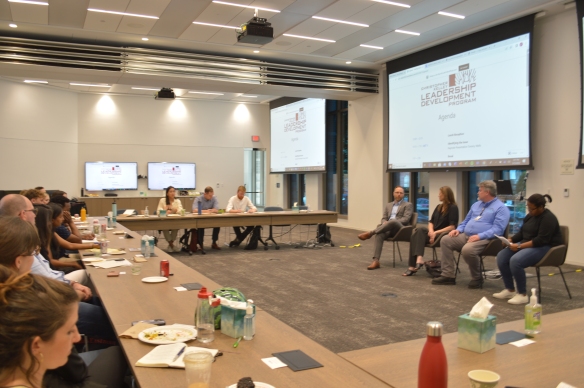
Presentation #3
Building Tour of the American Geophysical Union
Speakers: Matthew Boyd
Matt led the scholars on a tour of the American Geographical Union building, where he highlighted the many sustainable design features that are integral to the building. Beginning in the basement, Matt described how construction complications with utility connections were resolved using a water based heat pump and sewer connection. On the upper floors, he highlighted the green wall, radiant panels, and triple-pane electrified/tinted windows that darken in different areas depending on the time of day, to reduce heat gains. These features allow for increased efficiency in mechanical zoning, energy management between floors, and the ability to moderate the indoor building climate. The tour concluded at the roof, where there is a large solar array above a planted green roof, with plants specifically selected to thrive in the shade cast by the solar panels.
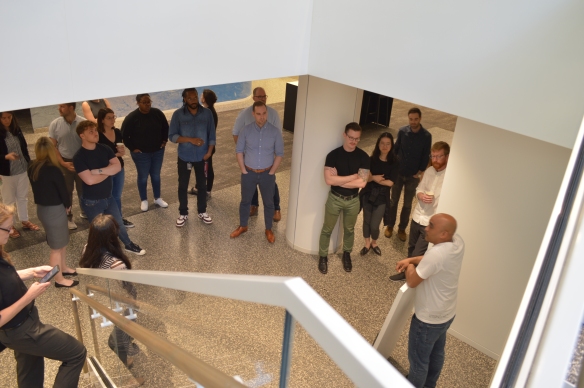
Presentation #4
Achieving Sustainability
Speakers: Amy Gardner, Brittany McNairy, Jenna Pye
The session concluded with short presentations from three architects, each with a unique expertise ranging from corporate interiors, to single family residential, to education. Each architect shared a few projects where sustainable practices and higher levels of socially mindful design had been utilized. Following their presentations, there was a roundtable discussion where attendees had the opportunity to inquire about challenges along the way. Some key elements stressed by the panelists included the importance of early energy modeling, simultaneous studies of building systems, and general best practices for client communication on sustainable design.
